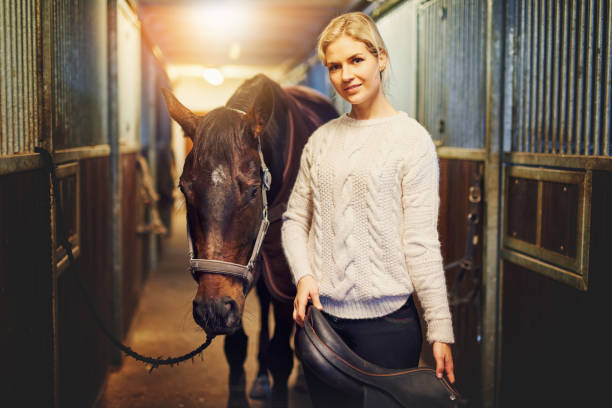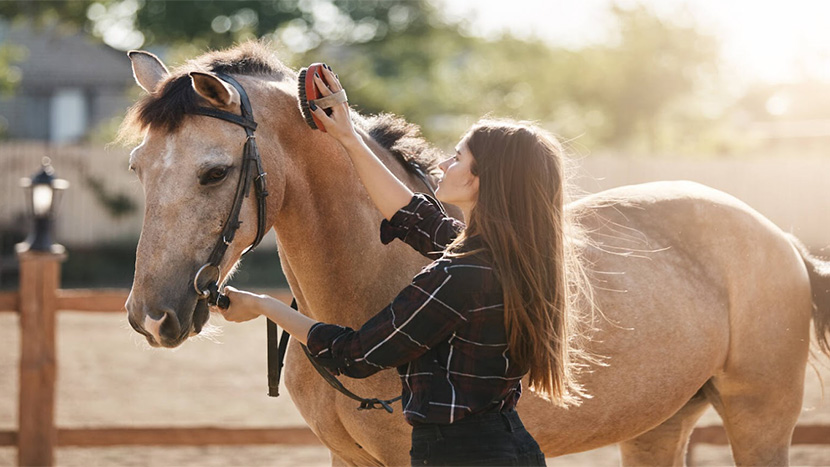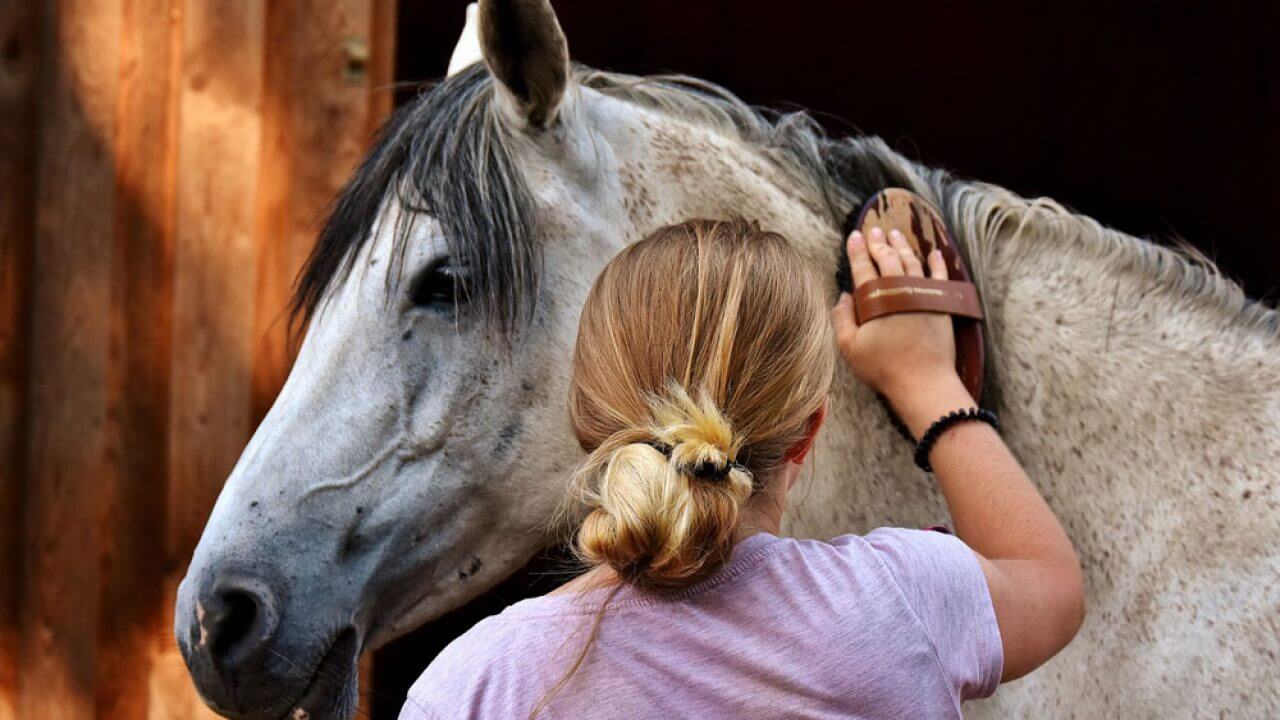Caring for senior horses requires a thoughtful approach that addresses their unique needs. As horses age, they face changes in their bodies and health. This makes conditioning senior horses an important task for horse owners. The goal is to maintain their health and vitality while ensuring they enjoy their golden years. In this article, we will explore the essentials of conditioning senior horses, focusing on exercise, nutrition, and care.

Understanding the Needs of Senior Horses
As horses age, their bodies undergo various changes. These changes can affect their strength, stamina, and overall health. Senior horses may experience muscle loss, joint stiffness, and a slower metabolism. Understanding these changes is crucial for conditioning them effectively.
Recognizing Signs of Aging
One of the first steps in conditioning senior horses is recognizing signs of aging. These signs may include weight loss, graying hair, and a decline in performance. Regular veterinary check-ups are essential to monitor these changes and address any health issues.
Importance of Regular Exercise
Exercise plays a vital role in conditioning senior horses. It helps maintain muscle mass, joint flexibility, and cardiovascular health. However, the exercise regimen for senior horses should be tailored to their individual needs and limitations.
Designing an Exercise Program
When designing an exercise program for senior horses, it is important to consider their age, health, and fitness level. A well-structured program can help improve their quality of life and extend their active years.
Types of Exercises
Various types of exercises can benefit senior horses, including walking, trotting, and stretching. Low-impact exercises are ideal for maintaining fitness without putting undue stress on their joints. For more about exercise routines, visit exercise for older horses.
Incorporating Rest and Recovery
Rest and recovery are as important as exercise for senior horses. Allowing time for recovery helps prevent injuries and ensures that the horse remains healthy and active.
Nutrition for Senior Horses
Nutrition plays a crucial role in the health of senior horses. Their dietary needs change as they age, requiring adjustments to ensure they receive the necessary nutrients.
Essential Nutrients
Senior horses require a diet rich in protein, fiber, vitamins, and minerals. Supplements may be necessary to address deficiencies and support overall health. For more information, check out digestive support for senior horses.
Feeding Strategies
Feeding senior horses smaller, more frequent meals can aid digestion and nutrient absorption. Monitoring their weight and adjusting their diet accordingly is also crucial to prevent obesity or malnutrition.
Health Care and Monitoring
Regular health care and monitoring are essential for senior horses. This includes routine veterinary visits, dental care, and vaccinations. Regular check-ups can help identify potential health issues early on.
Dental Care
Dental health is important for senior horses, as dental problems can affect their ability to eat and digest food properly. Regular dental check-ups and maintenance are crucial for their well-being.
Vaccinations and Parasite Control
Vaccinations and parasite control are vital for maintaining the health of senior horses. Ensuring they are up-to-date on vaccinations and have a parasite control plan in place is essential for their overall health. For more details, consider visiting senior horse annual checkup.
Creating a Comfortable Environment
A comfortable living environment is important for the well-being of senior horses. Providing appropriate shelter, bedding, and companionship can improve their quality of life.
Choosing the Right Bedding
Choosing the right bedding can enhance the comfort of senior horses. Soft, supportive bedding can alleviate pressure on their joints and promote restful sleep. To learn more, visit bedding for senior horses.
Social Interaction
Social interaction is important for senior horses. Providing them with companionship, either with other horses or human interaction, can boost their mental and emotional well-being.
Monitoring and Adapting
Regular monitoring and adapting the care plan for senior horses is essential. As their needs change over time, adjustments to their exercise, nutrition, and health care plans may be necessary.
Signs of Improvement or Decline
Monitoring senior horses for signs of improvement or decline can help determine if the current care plan is effective. Regular assessments and open communication with a veterinarian can guide necessary adjustments.
Adapting to New Challenges
As senior horses face new challenges, such as mobility issues or chronic conditions, adapting their care plan is crucial. Being proactive and attentive to their changing needs can help ensure their continued well-being.
Professional Guidance and Resources
Seeking professional guidance and utilizing resources can aid in the effective conditioning of senior horses. Veterinarians, equine nutritionists, and trainers can provide valuable insights and support.
Working with Veterinarians
Establishing a strong relationship with a veterinarian is crucial for the health of senior horses. Regular check-ups and consultations can help address health concerns and optimize their care.
Educational Resources
Accessing educational resources can enhance the knowledge and skills needed for conditioning senior horses. Online articles, books, and equine courses can provide valuable information and guidance. For additional tips on caring for older horses, visit this resource.
Conclusion
Conditioning senior horses is a rewarding journey that requires dedication and understanding. By focusing on exercise, nutrition, health care, and a comfortable environment, horse owners can ensure their beloved companions enjoy a healthy and fulfilling life. Regular monitoring, professional guidance, and adapting to their changing needs are key to success.

FAQs
How often should senior horses exercise?
Senior horses should engage in regular, low-impact exercise tailored to their individual needs. Consult with a veterinarian or equine trainer for personalized recommendations.
What are common health issues in senior horses?
Common health issues in senior horses include arthritis, dental problems, and metabolic disorders. Regular veterinary check-ups can help address these concerns.
How can I improve the diet of my senior horse?
To improve the diet of a senior horse, provide a balanced diet rich in essential nutrients. Consider adding supplements and consult with an equine nutritionist for guidance.
This article contains affiliate links. We may earn a commission at no extra cost to you.
